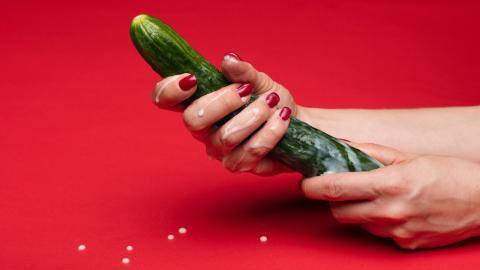Masturbating, as we all know (or at least, should know by now!) is a normal and healthy part of every individual's sex life. In women especially, it is important to vocalise this self-pleasuring practice at it has long been stigmatised, largely due to society's obsession with policing women's bodies.
Discover our latest podcast
As a result, many myths and concerns have remained undiscussed at large in fear of being criticised. But more and more, women are revealing the inevitable truth that they do in fact masturbate.
In a study conducted by Glamour Magazine, 91% of their audienceship said they participated in the act of pleasuring themselves, with 36% of those who actively masturbated saying they did so 2 to 5 times a week. Finally, 67% of regular masturbators answered that they use their favourite sex toy to aid them in the task.
Can getting off put you off?
However, is there such a thing as masturbating too much? And, more importantly, so much so that it might have a negative effect on one's libido? Psychosexual and relationship therapist, Jordan Dixon, says that the belief that getting yourself off regularly will diminish your sexual appetite is nothing more than a myth!
She explains that, the only real cause for a lowered libido is due to external factors such as lifestyle choices (sleep, nutrition, exercise) and stressors coming from work or the state of one's own relationship. In fact, these causes often have a direct effect on our hormones which in turn lead one to feel less inclined to get busy.
Masturbation is a powerful tool
On the contrary, Dixon explains that masturbation can actually fuel one's sex drive:
Research has shown that masturbation is one of the most common sources of orgasm, particularly among women. Masturbation can often serve as our information on, and experience of orgasm. Gaining sexual awareness first with oneself helps us to be more sexually aware with others.
She believes that masturbation can very well be used as a tool to enhance sexual intercourse with your partner—instead of diminishing it, by allowing one to explore what it is they like in sex and how to reach that point of euphoric climax. She says:
Self-pleasure can contribute to a sense of control and autonomy over one’s own body, and eventually might improve the capacity for intimacy with a partner because of increased sexual self-identity and sexual self-esteem.
And adds:
Masturbation can really help us in understanding and being curious about our bodies, with this curiosity individuals can access their own pleasure and power within.















